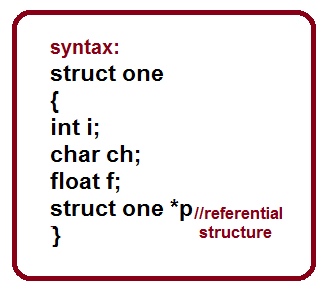Starting Your Indie Game Studio
LLC Registration
Forming a legal entity is an important first step for any game studio. By registering an Limited Liability Company (LLC), an indie developer can establish structure and protections as they work to build their first title. Creating an LLC does not require extensive legal expertise but does provide the basic framework to conduct business.

Choosing a Game Engine
With the business side handled, attention can now turn to development. Selecting a powerful yet approachable game engine like Unity or Unreal Engine allows creators to efficiently begin prototyping and building out playable levels, characters, and mechanics. Both options provide extensive documentation and asset store marketplaces that speed up the creative process.
Developing a Playable Demo
Making Substantial Progress
To apply for Xbox’s ID@Xbox program and access early developer kits, studios need a strong ** playable demo** that exhibits the core concept and shows the project is further than just an idea. Having robust levels, characters, or core gameplay loops with polish is key to catching the interest of Microsoft’s evaluators.
Completing the Application
With a compelling demo completed, applying to the program involves submitting basic details about the proposed game and development team. Details like targeted platforms, genre, and planned release timeframe give Microsoft a sense of studio intentions and capabilities. Patience is then required as applications are reviewed.
Continued Development and Certification
Staying Focused Through the Wait
Being accepted into ID@Xbox is not a guarantee, so developers must stay diligently working to improve their demo and progress the project regardless of the application outcome. Using feedback to refine core game mechanics, polish visuals, and fix bugs keeps momentum going if an invite is received.
Meeting Console Requirements
If accepted, ongoing development also requires addressing various non-negotiable certification standards around things like content, performance, and privacy before a game can launch on Xbox hardware. Ensuring compliance with Microsoft’s numerous quality assurance guidelines through repeated testing and fixes is paramount.
Launch Prep and Release
Picking a Launch Date
As the finish line comes into view, setting a concrete Xbox launch release date allows proper marketing and promotion scheduling. Factors like competitors, holiday seasons, and addressable install base are weighed to optimize potential success.
Creating Promotional Materials
Promising games deserve promotion to find their audience. Prior to release, studios craft launch trailers, screenshots, and storefront assets to entice wishlists and day one purchases. Social media campaigns are also developed to drum up early buzz.
Evaluating Pricing Strategy
Determining the appropriate price point balances recouping development costs with broad appeal and value perception. While indie games are often cheaper, the right game monetization strategy depends heavily on factors like scope, production values, and target demographic.
Launch and Post-Launch Support
Releasing on Xbox
After months of work, seeing one’s creation officially available for sale brings satisfaction like no other. However, the job is far from over, as reviews, sales , and player sentiment in the crucial post-release period heavily impact longevity and viability.
Monitoring Performance and Feedback
Taking a watch-and-learn approach to tracking metrics is important. Careful consideration of things like retention, completion rates, achievements, and sentiment help identify successes to duplicate or issues warranting fixes. Ongoing communication with players also affords opportunities for post-launch support.
Laying Groundwork for Future Projects
While supporting the current title, studios also think ahead by gathering player feedback, market insights, and technological lessons to apply to future game development projects. Long-term sustainability depends on continual improvement and keeping an ear to the ground regarding evolving player tastes and trends.
Applying to Xbox Game Pass
Evaluating Program Criteria
To determine Game Pass suitability, indies research participant selection factors like critical reception, commercial performance, and game quality/production values. Understanding the diverse goals of the service like variety, innovation, and appeal to game subscription audiences helps shape negotiation strategies.
Negotiating Contract Terms
If qualifying for consideration based on the aforementioned merits, studios enter discussions around programming, marketing support, and most importantly the monetization model split between royalties and upfront payment. Getting the right deal ensures a fair return on investment and supports ongoing development.
Weighing the Risks and Rewards Carefully
While the Game Pass platform introduces a game to millions, its impact on commercial performance is nuanced. Developers calculate factors like installation rates, playtime, and potential new consumers brought to the game and owner-driven DLC against any loss of traditional sales. Transparency from Microsoft eases these complex tradeoffs.
Benefitting from Game Pass Inclusion
Immediate Boost in Discovery and Sales
The inaugural rush of new players from the vast Game Pass library provides a substantial jolt to visibility and transactions. Formerly niche games find surprising spikes in numbers thanks to low barrier of entry.
Long-Tail Revenue from Subscriber Engagement
Just as important as the initial bump, continual smaller earnings accrue from subscribers revisiting older favorites or discovering hidden gems. Consistent low double-digit percentage of Game Pass users actively engaging each week keeps money flowing to partners.
Strengthening Relationships with Platform Holders
Succeeding on Game Pass builds strong rapport with the program’s stewards. Studios gain advocates who want to see them thrive and may provide early access to development tools or marketing support for future projects launching on Xbox. Investments beget investments.
Focus on Continual Support and Post-Launch Content
To retain and build an active playerbase, developers release new content updates, gameplay modes, and quality of life patches over months. This serves both to optimize the experience and maintain revenue streams through additional purchasable content.
Sustaining Success on Xbox
Understanding the Balance of Models
Juggling direct consumer sales, free-to-play models, and subscription placement requires weighing short and long-term gain. Developer experimentation and open communication with platform owners helps determine an optimal roadmap respecting all parties.
Maintaining Partnerships Through Collaboration
Cooperation rather than confrontation breeds longevity. Studios working transparently with executives, providing roadmaps and collaborating on promotions, tournaments or exclusive content, gain allies committed to mutual growth.
Diversifying Revenue Streams and Titles Over Time
Relying on a single game or business approach risks volatility. Mature indies diversify income between sequels, spin-offs, collaborations and new IP to achieve stability across market cycles. Involvement in multiple programs like Game Pass further spreads risk.
Staying Close to Communities and Trends
The most sustainable studios listen closely to dedicated fanbases and emerging gaming trends, reacting nimbly to keep relevant in an ever-changing medium. By understanding communities, operators can deliver beloved experiences for years to come.
 A Comprehensive Review of the PlayStation VR Experience
A Comprehensive Review of the PlayStation VR Experience